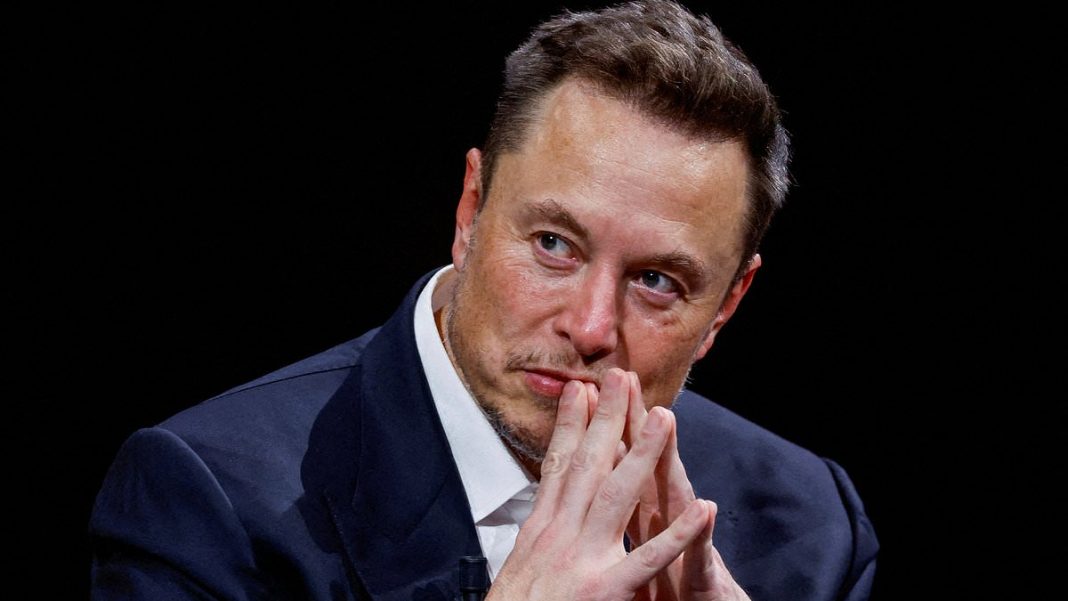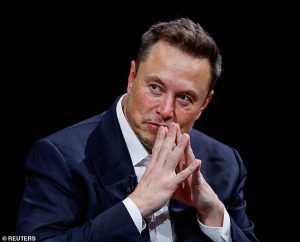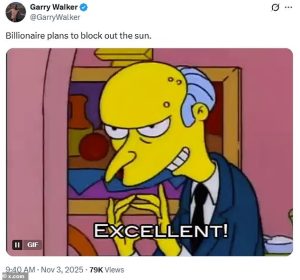Elon Musk Proposes Solar Blocking Satellites to Combat Climate Change
Elon Musk has proposed launching AI-controlled satellites to block sunlight and reduce global warming, but scientists warn the geoengineering plan could have catastrophic consequences.
Key Takeaways
- Musk wants AI satellites to make “tiny adjustments” to solar energy reaching Earth
- Scientists warn of unpredictable climate impacts and agricultural devastation
- Plan compared to Mr. Burns’ sun-blocking scheme in The Simpsons
- Experts say focus should remain on decarbonization instead
The SpaceX CEO revealed his vision for a “large, solar-powered” satellite constellation that would use artificial intelligence to regulate how much sunlight reaches our planet. The proposal immediately drew comparisons to the fictional Mr. Burns’ sun-blocking plot from The Simpsons.
Musk said: ‘A large solar-powered AI satellite constellation would be able to prevent global warming by making tiny adjustments in how much solar energy reached Earth’
Scientific Community Raises Alarm
Climate scientists and environmental experts have expressed serious concerns about Musk’s solar geoengineering proposal. Lili Fuhr of the Center for International Environmental Law called the technology “highly speculative” and warned it could “further destabilize our already fragile climate system.”
Professor Sammie Buzzard from Northumbria University emphasized that “it shouldn’t be up to one individual or one country to decide the climate for another,” highlighting the risk of “unintended consequences from untested methods.”
The Snowball Earth Risk
Musk himself acknowledged the potential danger of overcorrection, admitting that blocking too much sunlight could plunge Earth into another “snowball” state – referring to periods in Earth’s history when the planet was largely covered in ice.
Ram ben Ze’ev, a Scottish entrepreneur, warned that even a 1-2% reduction in solar energy could “devastate global agriculture, forests, and oxygen production” by disrupting photosynthesis.
Technical Feasibility and Governance Concerns
While Musk has demonstrated satellite deployment capability through Starlink’s 8,000+ satellites, experts question whether such climate intervention should be attempted. Alessandro Silvano from the University of Southampton noted that any geoengineering proposal “would need thorough evaluation of its technical feasibility, potential impacts on weather patterns and ecosystems, and its geopolitical implications.”
Scientists unanimously agree that proven decarbonization methods remain the safest approach to addressing climate change, rather than risky geoengineering experiments that could potentially make the situation worse.









